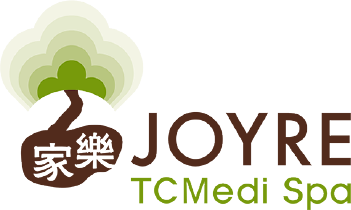
According to an IMH study surveying more than 1,000 people in Singapore, 1 in 10 people are mildly to severely stressed.
While managing one’s stress levels in the middle of a pandemic is never easy, it should be noted that severe, long-term stress is not good for anyone. Chronic stress, which means prolonged and continuous feelings of stress, can adversely affect your health. Symptoms of chronic stress include fatigue, difficulty concentrating, insomnia, digestive issues, frequent bouts of illness and restlessness. Over time, these symptoms can weaken the immune system, leading to heart disease, depression, high blood pressure and obesity.
Impact of Stress on the Digestive System
In TCM, stress negatively affects the flow of qi in the body, which in turn affects the function of various organs in the body.
For example, the digestive system is easily affected by stress. Stress obstructs the flow of qi in the spleen, leading to improper digestion that results in dampness accumulation in the body. Over time, dampness turns into fats and contribute to obesity and weight gain. Stress also affects appetite, causing either under-eating or overeating. Many digestive problems can be linked back to stress, such as heartburn, ulcers, stomach cramps, nausea, vomiting, constipation and diarrhoea.
Increased Pain & Aches
Stress is also known to increase shoulder tension, due to the fact that the Liver controls the neck and shoulders. Tension in the shoulder can sometimes lead to shoulder pain, neck pain and headaches. This is when Joyre’s TCM Tuina Massage or Acupuncture can provide the greatest relief from pain and aches.
Stress Increase “Liver Heat”
Impeded Liver qi means the Liver has to work harder to filter blood. When the Liver doesn’t filter blood properly, toxins build up in the body, causing inflammation and the blood to become more acidic.
Liver health is linked to both men and women. Liver health can affect a woman’s menstrual cycle. Stress can increase “liver heat” that increases blood flow, causing menstrual cycles to come early or last longer with excessive blood flow.
Another way stress affects the liver is by blocking liver qi and causing stagnation. Liver qi stagnation may result in PMS, menstrual cramps, blood clots, late menstrual cycles and tender breasts before or after menstrual periods. For men, stress to the Liver causes low testosterone levels, low libido and increased inflammation of the prostate and urethra.
Dealing Stress With TCM Treatments
Stress management with TCM usually involves acupuncture, moxibustion, massage therapies such as TCM Tuina massage, gastrointestinal care treatment and herbal remedies.
In terms of digestive issues, acupuncture, moxibustion and gastrointestinal care treatment will help ease the symptoms of qi stagnation. Meanwhile, herbs such as dried hawthorn fruit and mandarin peel help with digestion and reduce bloating.
Women’s health issues are also closely linked to stress. Depending on the severity of the condition, acupuncture, moxibustion, herbal remedies or a combination of all treatments may be used. The key is to reduce liver heat and qi stagnation.
Joyre TCMedi Spa uses Traditional Chinese Medicine principles to treat stress-related conditions for our patients. Call or WhatsApp 9230 0355 to book your appointment.
